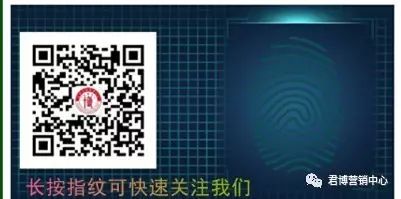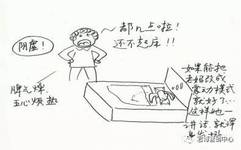Modern individuals often focus on “Yang Deficiency” and know how to “tonify Yang,” while neglecting “Yin Deficiency.” Little do they realize that many sub-health symptoms such as low immunity, insomnia, poor appetite, and mental fatigue are caused by “Yin Deficiency.”
Let’s first discuss the manifestations of Yin Deficiency!
In nature, droughts frequently occur. In arid regions, the land may crack, and vegetation withers; or deserts stretch endlessly, devoid of life. From a human perspective, Yin Deficiency refers to varying degrees of internal “drought” (heat symptoms), and in more severe cases, it leads to “fire disasters” (diseases)! The five organs and six bowels, as well as the limbs, rely on Yin fluids for nourishment and moisture. If Yin fluids are insufficient, organs will lack nourishment and moisture, leading to a multitude of diseases.
Therefore, it is easy to understand that both Qi and Yin Deficiency are akin to a fire disaster; in addition to consuming a large amount of water, it also consumes a significant amount of oxygen. From a human perspective, as the body consumes a large amount of Yin fluids, it inevitably depletes the vital energy (Yuan Qi) used for transformation. Patients with heat diseases and high fevers, or those suffering from chronic consumptive diseases (such as diabetes, hypertension due to liver fire, tuberculosis, etc.), often experience fatigue, which indicates Qi Deficiency.
The following six illustrations will show you the symptoms of Yin Deficiency.
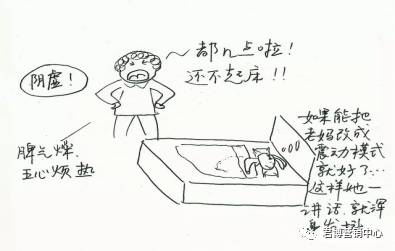
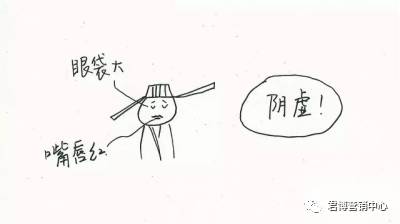
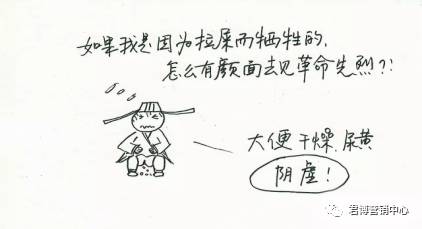
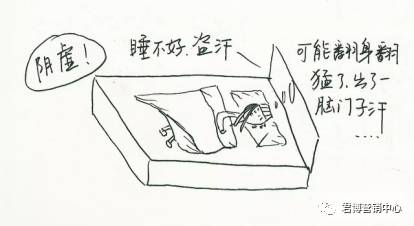
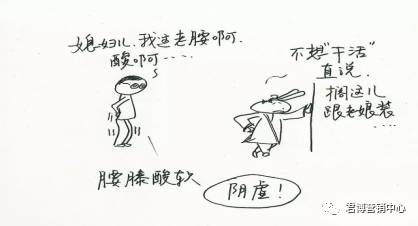
In addition, there are many symptoms in the head and face.
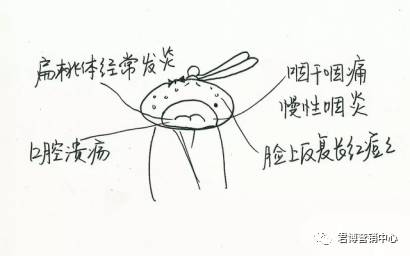
All of the above are symptoms that may arise from Yin Deficiency, so Yin Deficiency can indeed make you look worse, leading to acne, dark circles, and a ruddy complexion, among others. However, the causes of acne are complex and may also be due to blood stasis or excess heat syndrome. Therefore, before treating your acne, it is essential to determine the underlying cause to use the correct medication.
What does the tongue look like in Yin Deficiency?
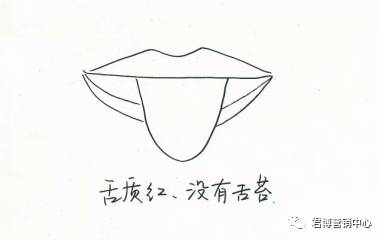
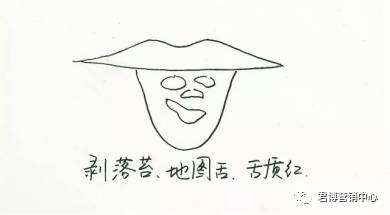
Oh, I’m sorry, I forgot to draw the lower lip in the second tongue image; I realize it looks a bit awkward… This is a common tongue image for Yin Deficiency.
So why do so many symptoms resembling “heat” occur when there is Yin Deficiency?
——Because the Yin and Yang of the human body are mutually supportive; there is Yang within Yin and Yin within Yang.
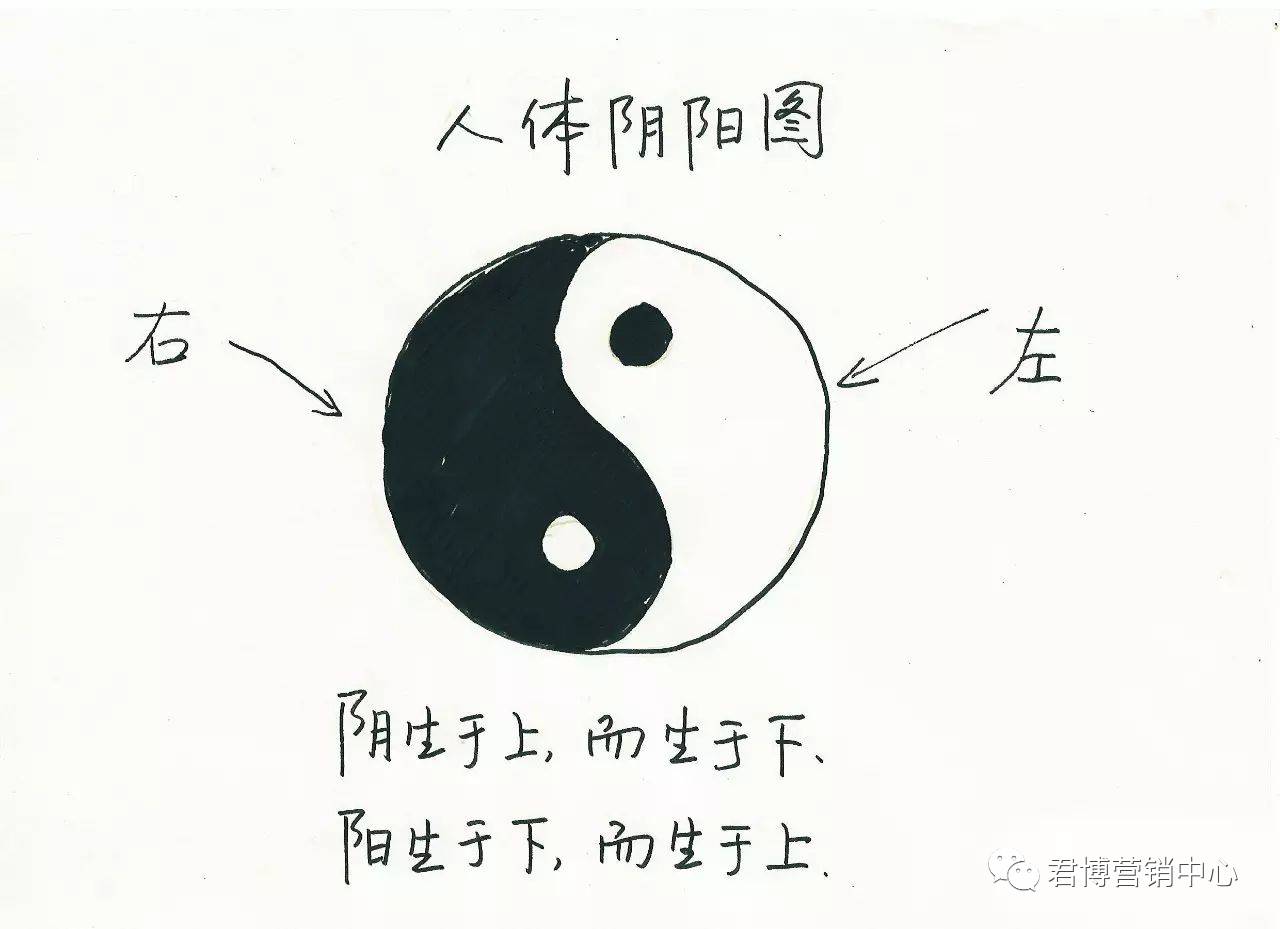
When Yin is deficient, it cannot contain Yang, and Yang energy rises, moving to the upper part of the body, which is known as “false heat rising.”
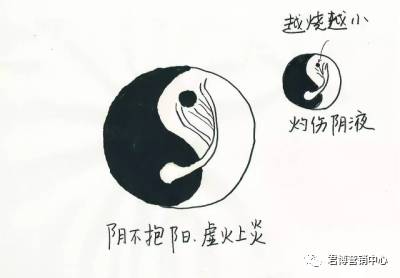
The rising fire scorches the Yin fluids above (lung Yin and heart Yin), resulting in this “heat” phenomenon. In reality, it is not that there is an excess of fire, but rather a deficiency of Yin. Therefore, one must not simply use medications to drain fire; doing so will not only fail to treat the original “false heat” symptoms but may also harm Yang energy, leading to a more severe loss of Yin and Yang. At this time, it is essential to replenish Yin fluids. The lungs open to the throat, so a deficiency of lung Yin can lead to chronic pharyngitis, frequent tonsillitis, and dry cough. The heart opens to the tongue, so a deficiency of heart Yin can lead to recurrent oral ulcers. Additionally, one may experience five hearts heat, a hot head, and a red face, often leading to recurrent acne.
A friend of mine, Xiao Xu, suffered from oral ulcers for months last winter without improvement, despite multiple hospital visits where they prescribed fire-draining Chinese medicine. As a result, she became increasingly deficient and weak, with no improvement in the ulcers, and later developed a cold stomach. I repeatedly told her that this was false heat and that she needed to replenish Yin.
Here, I will briefly explain the difference between false heat and true heat: False heat is generally caused by chronic diseases, presenting more gently, and is often accompanied by other Yin Deficiency symptoms. True heat, on the other hand, is sudden and severe, with the body generally being more robust. For example, if one eats a large meal of lamb or barbecued food at night, they may wake up with mouth sores the next day; this is a typical case of true heat.
At this point, many friends may be worried, thinking, how could I have Yin Deficiency with such a good body???
In fact, the reasons for Yin Deficiency in modern individuals are generally as follows:
1 Chronic illness, influenza, fever, and difficult-to-treat diseases lead to the depletion of Yin fluids.
2 Excessive or repressed emotions such as joy, anger, sorrow, and fear, such as depression, can lead to internal heat, which burns and consumes Yin essence.
3 Excessive sexual activity and overconsumption of warming and drying substances (such as ginseng, cordyceps, and donkey-hide gelatin) can lead to a deficiency of Yin fluids, depriving the body of nourishing substances.
4 Long-term consumption of spicy and heating foods; long-term heart dysfunction or excessive use of diuretics in hypertensive patients.
5 Irregular lifestyle, such as being a night owl.
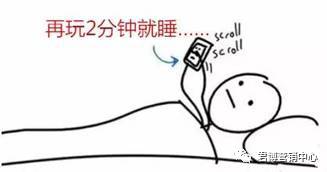
The basic symptoms of Yin Deficiency include: insomnia with vivid dreams, tinnitus, night sweats, irritability, dry mouth and throat, dizziness, weakness in the lower back and knees, and constipation…
If you know you have Yin Deficiency but do not take care, be cautious as these diseases may come knocking!
1 Tuberculosis
Those with Yin Deficiency have weak Qi and blood, depleted Yin essence, and lowered immunity, making it easy for viruses to invade, leading to tuberculosis, such as pulmonary tuberculosis, bone tuberculosis, and lymphatic tuberculosis.
2 Habitual insomnia
Individuals with Yin Deficiency and internal heat often experience “five hearts heat,” feeling restless and anxious. Changes in climate, emotions, diet, or environment can easily lead to insomnia.
3 Constipation
Those with Yin Deficiency lack water in the body, which can lead to intestinal descent and constipation. Additionally, urination may be scant and yellow, and even frequent water intake may not improve the situation.
4 Skin blemishes
Individuals with Yin Deficiency are prone to skin dehydration, making it difficult to expel impurities, leading to blemishes. Particularly, blemishes caused by Yin Deficiency and internal heat are very difficult to remove.
5 Oral ulcers
Those with internal heat due to Yin Deficiency are prone to heat, leading to oral ulcers. Additionally, individuals with Yin Deficiency often have dry skin and cracked lips, making them more susceptible to mouth sores.
6 Shortened menstrual periods
Women with Yin Deficiency and internal heat often experience early menstruation and shortened menstrual cycles. If not treated promptly, it may even lead to amenorrhea.
7 High blood lipids and hypertension
Although individuals with Yin Deficiency may be thin, when Yin Deficiency reaches a certain level, excessive dehydration can lead to thickened blood and elevated blood lipids.
8 Diabetes
In the early stages of diabetes, it is generally characterized by Yin Deficiency, with persistent thirst that is unrelieved by drinking water, and dry lips that appear as if covered in dew.
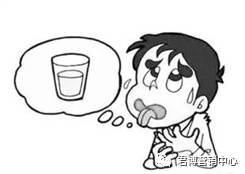
9 Tumors
Individuals with a Yin Deficiency constitution who have long-term emotional repression and a tendency towards blood stasis are at risk for tumors. Therefore, if the body shows unexplained lumps, hard masses, or blood in the stool, special attention should be paid, and timely examination is necessary.
Next, let’s address the question that foodies are most concerned about: what foods can and cannot be eaten?
Those with Yin Deficiency can consume more foods that nourish Yin energy, such as sesame, glutinous rice, mung beans, lotus root, cabbage, black fungus, white fungus, tofu, sugarcane, plums, peaches, watermelon, cucumbers, lilies, yam, squid, soft-shelled turtle, sea cucumber, abalone, crab, milk, jellyfish, duck meat, and pig skin. These foods are generally sweet, cold, and cooling in nature, all of which have the effect of nourishing Yin energy in the body. It is advisable to combine with Mai Wei Di Huang capsules for targeted nourishment.
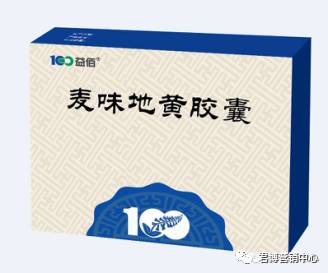
Mai Wei Di Huang capsules
contain Mai Dong (Ophiopogon japonicus), Wu Wei Zi (Schisandra chinensis), Shu Di Huang (Rehmannia glutinosa), Shan Zhu Yu (Cornus officinalis), Mu Dan Pi (Paeonia suffruticosa), Shan Yao (Dioscorea opposita), Fu Ling (Poria cocos), and Ze Xie (Alisma orientale).
Ze Xie promotes urination and drains kidney dampness, while also reducing the cloying nature of Shu Di Huang. Fu Ling helps to drain dampness from the spleen and assists Shan Yao in promoting digestion, working with Ze Xie to drain kidney dampness and restore true Yin to its rightful place. Mu Dan Pi clears and drains false heat while moderating the warming and astringent nature of Shan Zhu Yu.
Mai Wei Di Huang capsules are primarily used for symptoms caused by kidney Yin Deficiency, such as weakness in the lower back and knees, dizziness, tinnitus, heat in the palms and soles, nocturnal emissions, and night sweats. Verified by generations of physicians, the clinical efficacy is significant, leading to its reputation as the “ancestor of Yin-replenishing formulas.”
Mai Wei Di Huang capsules can specifically be used for the following diseases:
1 Nocturnal emissions, symptoms include lower back pain, nocturnal emissions, and heat in the palms and soles.
2 Asthma, symptoms include persistent and severe shortness of breath, worsening during activity, with little or no phlegm.
3 Pulmonary tuberculosis, symptoms include dry cough with blood, afternoon fever, internal heat due to Yin Deficiency, night sweats, and general fatigue.
4 Diabetes, symptoms include thirst and dry tongue, frequent urination, thin and rapid pulse, red tongue with little coating.
Additionally, Mai Wei Di Huang capsules have other clinical applications, such as nephritis with proteinuria, persistently low levels of alpha-fetoprotein, menopausal syndrome, recurrent oral ulcers, periodontal abscesses, and chronic rhinitis.
Moreover, Mai Wei Di Huang capsules have significant effects in enhancing immunity, anti-aging, anti-fatigue, cold resistance, hypoxia tolerance, lowering blood lipids, lowering blood pressure, lowering blood sugar, improving kidney function, promoting metabolism, and providing strong tonic effects.
Remember: Individuals with Yin Deficiency and excess heat should avoid spicy foods, and it is best to refrain from hot pot and limit the consumption of chicken, as well as minimize steaming, frying, and roasting foods. Fruits like longan and lychee should be avoided if possible.
The good news is: Yin Deficiency is the only condition where one does not need to avoid cold drinks, as cold drinks can have a regulating effect on Yin Deficiency. Of course, it is encouraged to consume them in moderation.
